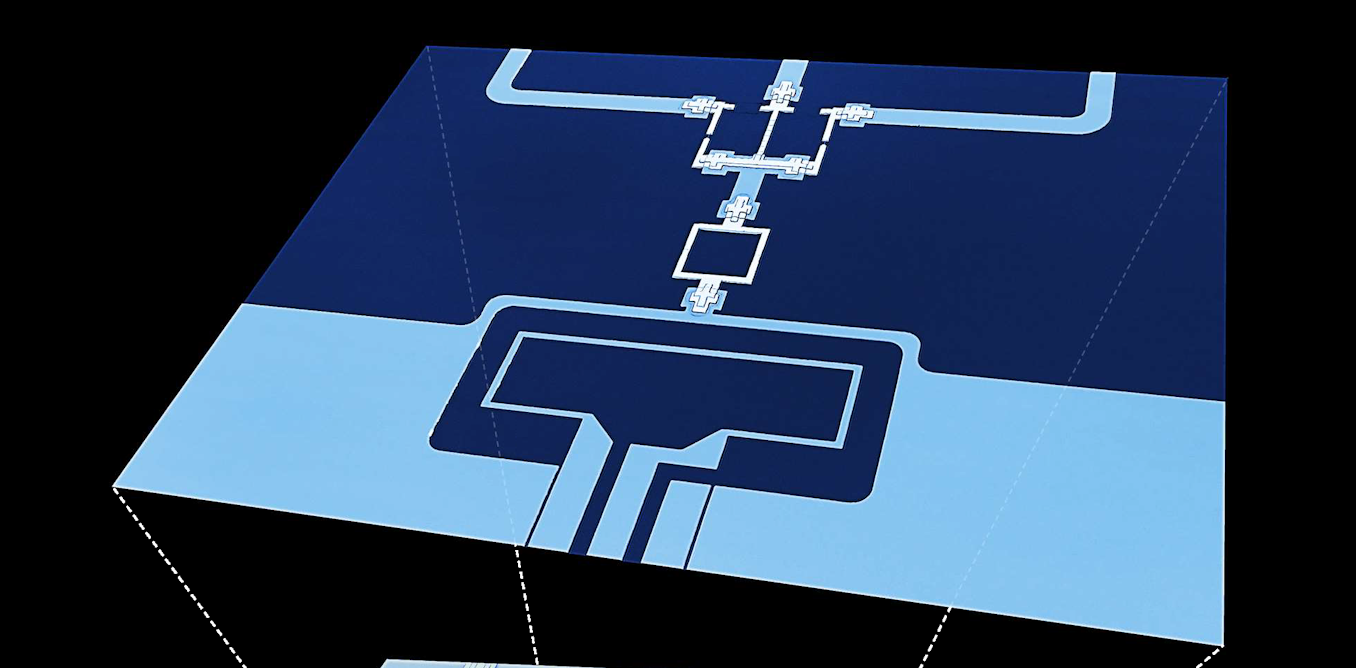Science
Nobel Prize in Physics Honors Groundbreaking Quantum Research

The Nobel Prize in Physics for 2025 has been awarded to three scientists for their pivotal research on superconducting circuits that has propelled the field of quantum technology. The laureates—John Martinis, Michel Devoret, and John Clarke—demonstrated that even large electrical circuits could exhibit quantum behavior, laying the groundwork for practical applications in quantum computing.
Quantum mechanics describes the peculiar behavior of microscopic particles, which can lead to solutions in complex fields such as chemistry and cryptography. Researchers believe that quantum systems can tackle problems that are currently insurmountable for traditional computers. The work by the Nobel Prize winners is critical for advancing technologies that leverage these quantum principles.
Revolutionizing Superconducting Circuits
In the mid-1980s, Martinis, Devoret, and Clarke conducted groundbreaking experiments using circuits made from niobium and lead. When cooled to temperatures just above absolute zero, these materials become superconductors, meaning they can conduct electricity without generating heat. Their research revealed that the voltages and currents in these superconducting circuits are governed by quantum mechanics, enabling quantized energy levels and superpositions of states.
This discovery proved that superconducting circuits could be described as single quantum particles, making them highly useful for a variety of applications. For instance, researchers are currently using these circuits to explore fundamental quantum physics, emulate systems of particles, and test protocols for precision sensing. A recent achievement from Devoret’s group includes the development of a near-ideal microwave amplifier based on superconducting technology, a breakthrough that has significant implications for communications and scientific instruments.
Advancements in Quantum Computing
The most substantial application of superconducting circuits is in the realm of quantum computing. Superconducting qubits, the basic units of quantum information, can interact and become entangled, allowing them to function as a unified system. The combination of quantization, superposition, and entanglement empowers quantum computers to perform complex calculations far beyond the capabilities of classical computers.
For quantum computing to be effective, qubits must meet several criteria: they should be coherent, controllable, and scalable. Superconducting qubits excel in these areas, allowing researchers to design circuits that can achieve the desired behaviors with predictability. Other quantum technologies, such as trapped atoms or ions, often face challenges related to control and interaction due to their small size, making superconducting circuits a more appealing alternative.
Research groups, including those led by the Nobel laureates, are continually innovating in the field. Efforts focus on developing new types of superconducting qubits, enhancing coherence, improving control methods, and scaling these technologies for practical use. Meanwhile, various companies and government laboratories are translating these academic breakthroughs into engineering solutions for large-scale quantum processors.
The contributions of Martinis, Devoret, and Clarke extend far beyond their 1980s research. Martinis has led quantum processor initiatives at Google and now runs his own company. Devoret remains involved with Google’s quantum efforts, while Clarke has also made significant contributions to quantum circuits throughout his career.
As the field of superconducting circuits continues to evolve, the impact of these pioneering scientists remains profound, shaping the future of quantum technology. Their legacy is not only in their discoveries but also in the countless researchers they have influenced across the globe. The journey into the quantum realm is ongoing, and the groundwork laid by these laureates will guide future innovations.
This article was written by Eli Levenson-Falk, who has disclosed no relevant affiliations beyond their academic appointment.
-

 World3 months ago
World3 months agoTest Your Knowledge: Take the Herald’s Afternoon Quiz Today
-

 Sports3 months ago
Sports3 months agoPM Faces Backlash from Fans During Netball Trophy Ceremony
-

 Lifestyle3 months ago
Lifestyle3 months agoDunedin Designers Win Top Award at Hokonui Fashion Event
-

 Sports3 months ago
Sports3 months agoLiam Lawson Launches New Era for Racing Bulls with Strong Start
-

 Lifestyle3 months ago
Lifestyle3 months agoDisney Fan Reveals Dress Code Tips for Park Visitors
-

 World3 months ago
World3 months agoCoalition Forms to Preserve Māori Wards in Hawke’s Bay
-

 Health3 months ago
Health3 months agoWalking Faster Offers Major Health Benefits for Older Adults
-

 Politics3 months ago
Politics3 months agoScots Rally with Humor and Music to Protest Trump’s Visit
-

 Top Stories3 months ago
Top Stories3 months agoUK and India Finalize Trade Deal to Boost Economic Ties
-

 World3 months ago
World3 months agoHuntly Begins Water Pipe Flushing to Resolve Brown Water Issue
-

 Entertainment3 months ago
Entertainment3 months agoExperience the Excitement of ‘Chief of War’ in Oʻahu
-

 Science3 months ago
Science3 months agoNew Interactive Map Reveals Wairarapa Valley’s Geological Secrets









